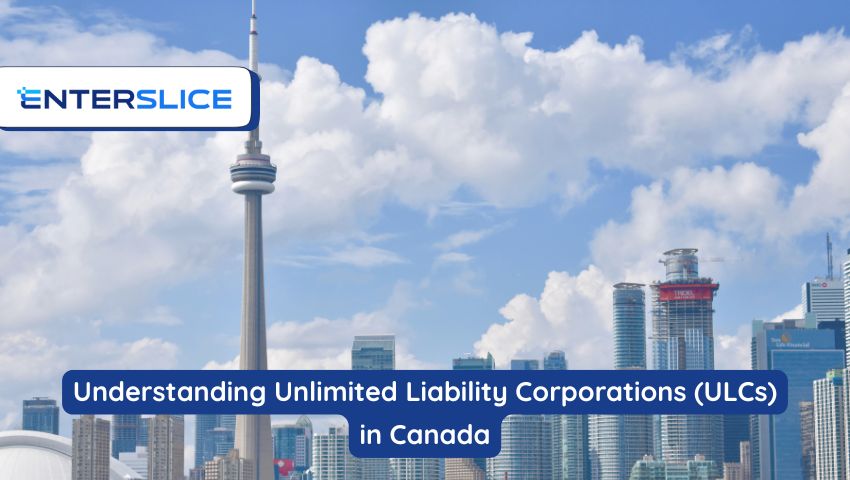If you’re an entrepreneur looking to expand or start your business operations in Canada, you’ve likely come across various types of business structures. Among them, Unlimited Liability Corporations (ULCs) are a lesser-known but important option for certain investors. While ULCs aren’t the go-to choice for most entrepreneurs, they can offer strategic advantages, especially for U.S.-based businesses looking at tax efficiencies.
In this guide, we’ll explore what ULCs are, their legal implications, who they’re ideal for, and how they fit into the bigger picture of company registration in Canada.
What Is an Unlimited Liability Corporation?
An Unlimited Liability Corporation, or ULC, is a type of corporation that can only be formed in three Canadian provinces: Alberta, British Columbia, and Nova Scotia. The defining feature of a ULC is that shareholders can be held personally liable for the debts and obligations of the corporation. This is in stark contrast to most corporate structures, where liability is limited to the amount invested in the company.
ULCs are established under provincial legislation and function similarly to other corporations in terms of governance, taxation, and regulatory compliance, but the liability aspect is a significant difference.
Why Would Anyone Choose an Unlimited Liability Corporation?
You might be wondering: Why would someone willingly choose a structure that increases personal financial risk? The answer often lies in tax planning, particularly for U.S. parent companies.
Under U.S. tax laws, ULCs can be treated as “disregarded entities,” allowing income or losses to flow directly to the U.S. parent company. This can provide a range of tax benefits, such as the ability to use Canadian losses to offset U.S. taxable income. However, these benefits depend heavily on current tax treaties and regulations, which can change.
It’s important to note that these tax advantages are usually only relevant to U.S. companies, not individual entrepreneurs or companies from other jurisdictions.
Legal and Financial Considerations
Forming a ULC comes with unique responsibilities and risks. Here are a few points to consider:
- Personal Liability: Shareholders of a ULC can be personally responsible for company debts. This means that if the business fails, creditors may seek personal assets to cover liabilities.
- Regulatory Compliance: ULCs must comply with provincial regulations in the province where they are registered. This includes maintaining a registered office, filing annual returns, and keeping proper records.
- Taxation: ULCs are considered regular corporations for Canadian tax purposes. However, from a U.S. tax perspective, they can be treated differently depending on how they’re structured.
- Complex Incorporation Process: Incorporating a business in Canada as a ULC can be more complex than forming a limited liability corporation. Legal and accounting guidance is essential.
How ULCs Fit Into Company Registration in Canada
When considering company registration in Canada, entrepreneurs generally choose between several structures: sole proprietorships, partnerships, limited liability corporations, and, in some provinces, ULCs.
ULCs are not recommended for everyone. They’re particularly advantageous for cross-border businesses, especially those from the United States seeking a tax-efficient vehicle for Canadian operations. For most Canadian residents or foreign entrepreneurs not operating under U.S. tax rules, the increased personal liability makes ULCs less attractive.
That said, understanding all the options available is crucial when considering Canada company incorporation. Selecting the right structure impacts your taxes, risk exposure, and operational flexibility.
Incorporating a ULC in Canada: Step-by-Step
If you’ve assessed the pros and cons and determined that a ULC suits your business strategy, here’s a general roadmap to incorporating a business in Canada under this structure:
- Choose Your Province: As ULCs are only permitted in Alberta, British Columbia, and Nova Scotia, your business must be registered in one of these provinces.
- Name Your Corporation: Conduct a name search and reserve your business name, or opt for a numbered corporation.
- Draft Articles of Incorporation: These documents outline the structure and governance of your ULC.
- Appoint Directors and Shareholders: You’ll need to identify who will be responsible for managing the corporation.
- File Incorporation Documents: Submit your documents to the appropriate provincial registry, along with the required fees.
- Get Required Licenses and Permits: Depending on your industry and location, you may need specific business licenses to operate.
- Set Up Financial and Tax Accounts: Register for applicable taxes, set up a corporate bank account, and consult a tax advisor familiar with ULC structures.
Remember, while incorporating a ULC may seem like a viable option for some, it’s essential to involve legal and financial experts in the process. This structure comes with high stakes, and understanding the long-term implications is key to success.
Also Read: Understanding Canadian Tax Compliance
Is a ULC Right for You?
Choosing the right business structure is one of the most critical decisions you’ll make when entering the Canadian market. A ULC might offer tax efficiencies, especially if you are a U.S. entrepreneur managing cross-border operations. However, for most international entrepreneurs, the risks often outweigh the benefits.
If your goal is to establish a strong and secure presence in Canada, there are other incorporation routes that offer liability protection while still keeping your operations compliant and efficient. That’s why it’s essential to take a comprehensive view when exploring Canada company incorporation options.
Whether you’re looking at ULCs, standard corporations, or alternative structures, we recommend a strategic consultation before making your move.
Conclusion
Unlimited Liability Corporations in Canada offer unique advantages for specific situations, particularly for U.S.-based corporations looking to optimize tax positions. However, they come with notable risks that require careful planning and expert advice.
If you’re considering company registration in Canada, take the time to evaluate whether a ULC fits your long-term goals. From legal exposure to tax obligations, understanding every aspect is essential before incorporating a business in Canada under this or any other structure.
Our team of experts can help guide you through the process and ensure your business is built on a solid foundation from day one.
FAQs
1. Can non-U.S. citizens benefit from forming a ULC in Canada?
Generally, ULCs are most beneficial for U.S.-based companies due to how they’re treated under U.S. tax laws. Entrepreneurs from other countries may not receive the same tax advantages and could be exposed to unnecessary liability.
2. Are ULCs treated differently for Canadian tax purposes?
No, ULCs are treated like any other corporation for Canadian tax purposes. The unique treatment primarily applies under U.S. tax laws when structured appropriately.
3. Can I convert a regular corporation into a ULC later?
In some provinces, it’s possible to change your corporation’s status, but the process is complex and may involve significant legal and tax considerations. It’s best to decide on your structure before incorporation.



